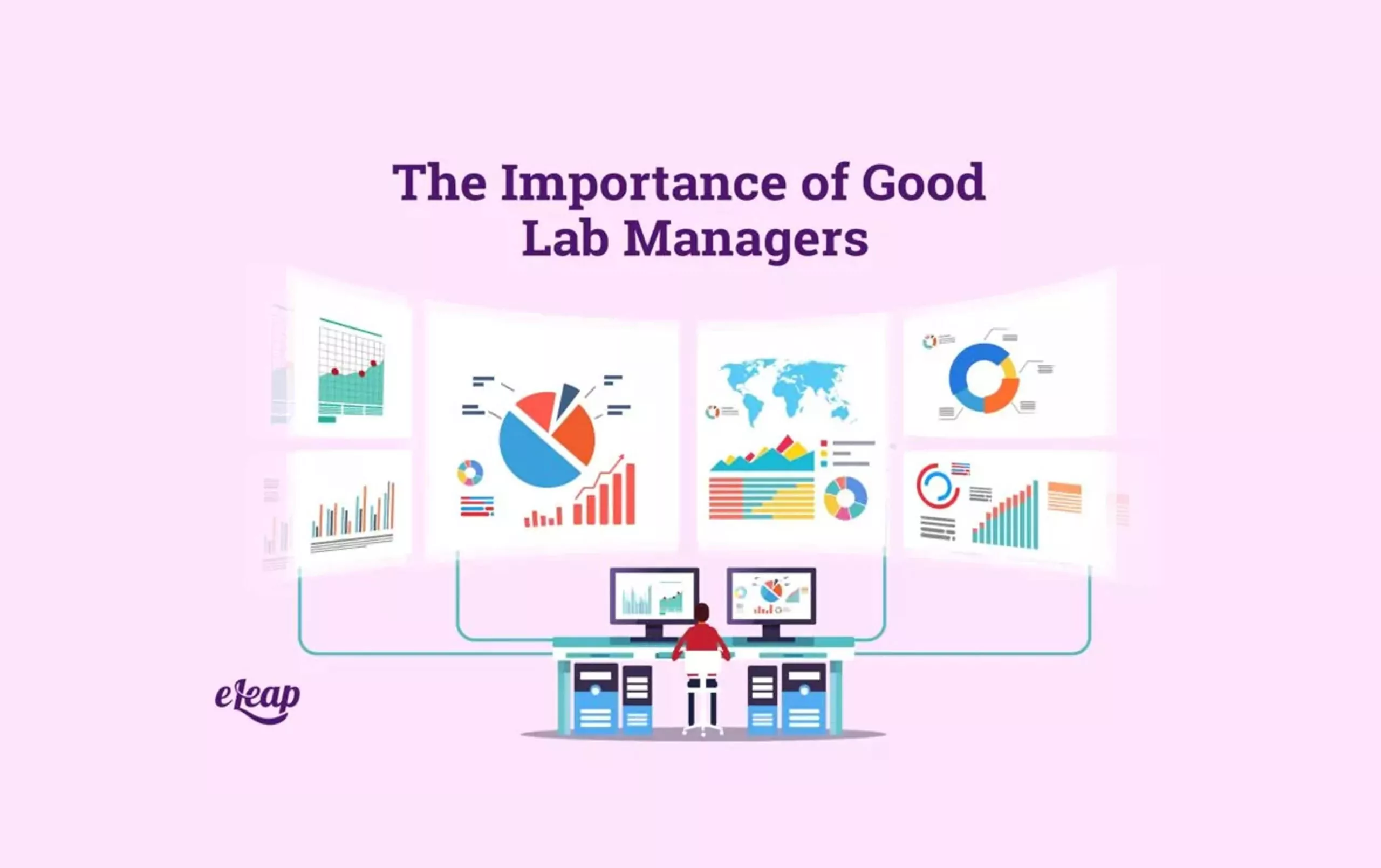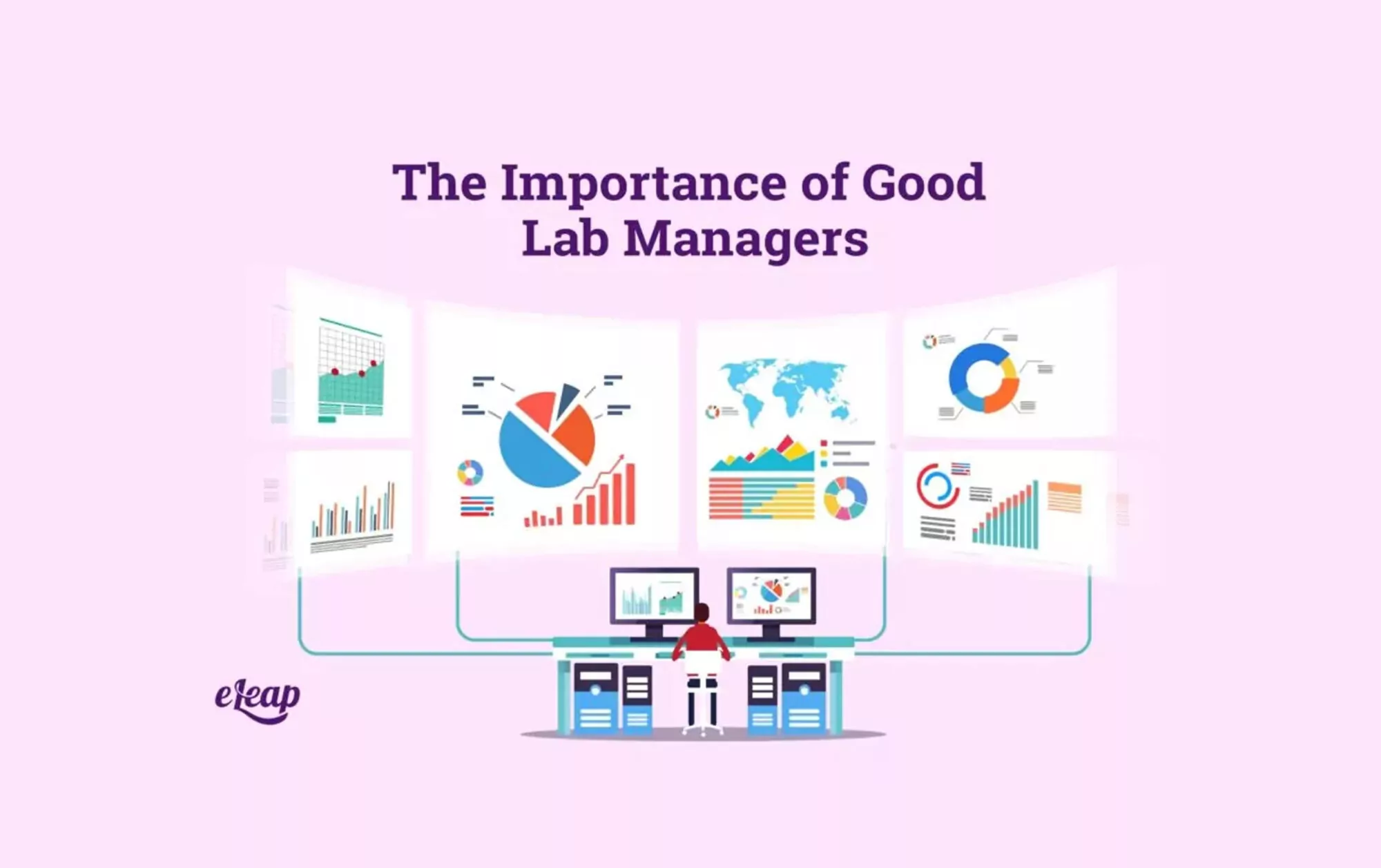The Importance of Good Lab Managers

Just as with any other organization, labs in the healthcare and biopharmaceutical industries need to be properly managed. Without adequate management, labs can quickly find themselves struggling with their resources, productivity, employee efficiency, and budgeting. Managers must organize a workflow, oversee the daily operation of the lab, and train new employees.
Keeping the lab conditions and personnel up to date is an important aspect of lab management. Medical or clinical laboratories are governed by ethical standards in the acquisition of information, the conduct of experiments, the analysis of data, and the publication of findings. For obtaining, handling, storing, and disposing of chemical or biological materials, laboratory personnel must observe and abide by applicable chemical or biological safety regulations. The rules of running a lab need to be adhered to strictly, not only to keep the lab running smoothly but also to ensure safety.

What Skills Should Lab Managers Have?
Labs need to be set up and run in a certain way in order to operate safely and successfully. Besides possessing the technical background for the work in the lab, a lab manager should possess the following skills:
Analytical Skills
Lab managers need to use analytical skills in order to adequately determine the complexity, technicality, and importance of tasks at hand, as well as ensure that they are all completed on time.
Leadership Skills
Just like in other industries, lab managers are leaders and need to possess good leadership qualities to lead their teams to success. Planning, prioritizing, making decisions, delegating, and solving problems are all important management skills.
Organizational skills are another important leadership attribute of a lab manager. Laboratory managers must be organized in order to achieve their goals. When a longstanding mundane task can be accomplished with minimal resources, organizing skills are particularly useful. For example, managers should adopt and enforce a well-organized and established workflow for equipment maintenance to reduce the time that lab managers spend on inspecting and maintaining the equipment.
Interpersonal Skills
Laboratory managers need people skills to do their jobs effectively because the majority of their duties involve interacting with other lab employees. Lab managers can also use these to communicate with clients, visitors, and suppliers outside the lab. Critical interpersonal skills include:
The Ability to Communicate Effectively
Lab managers generally need to have overall good communication skills. Managers need to be able to communicate effectively in order to lead properly. This is critical when hiring new employees, training, implementing new rules and regulations, and setting expectations.
Good Coordination Capabilities
In order for the lab to be aligned, the manager of the lab is usually responsible for coordinating with both the organization’s leaders and employees. An effective lab manager engages lab members, helps them recognize and develop their potential, and motivates them to overcome their shortcomings, so they can reach their goals. They also have the ability to facilitate overall coordination between everyone involved in the workings of the lab.
Negotiation Skills
Good managers need to be able to negotiate effectively. Negotiation capabilities can help with a wide array of different lab tasks, such as increasing budgets and reducing lab expenses.
As a result of a lab manager’s analytical, managerial, and interpersonal skills, together with his or her technical knowledge of the lab, lab personnel will be able to participate fully in the work environment as well as reach their full potential.
Tips for Efficient Lab Management
A Good Understanding of Terms and Techniques
One of the most difficult aspects of procuring an effective lab manager is finding someone who possesses all of the leadership skilled listed above as well as having knowledge and expertise in their relevant industry. Lab managers do most of their work within the lab, so naturally, they need to interact frequently with highly skilled engineers or scientists. This requires that managers understand the terms and technical language used around the lab.
Know Your Team Members
Without successful, content, efficient staff, a lab will struggle to be successful. To get the most out of lab personnel, it’s important to know and understand their background, what their aspirations are, and how they function. The lab manager can use this information to place the right personnel in the right positions. As a result, personnel engagement will be tailored, and the decision-making process supported in a way that is most effective for the lab’s success.
Know-How to Choose and Use the Right Tools
Anyone who has experience in a lab knows that a lot of the day-to-day tasks that managers are responsible for are quite mundane and repetitive—for example, preparing for regulatory inspections or renewing permits. The right tools can help organizations accomplish these tasks in a shorter period without asking too much of the manager. Budgets can also be easily traced using reliable software that tracks income and expenditures. In addition to saving a lab manager’s time, the right tools can provide insight into inventory control at the laboratory.
Ensuring Staff Are Updated and Skilled
In terms of the scope of lab work and skillsets of the staff, staying on top of the most recent developments in the field is a guarantee for growth. The job of a lab manager requires a lot of technical expertise as well as some nontechnical expertise. The long-term benefits to a lab can be achieved by investing in training sessions where new skills can be acquired. Managers need to be able to ensure their staff stays up to date on regulations and compliance, as well as complete necessary training.
A lab manager needs to possess not only the skillsets of a generally good leader but also skills that are specific to working in a lab. A lab manager is responsible for all aspects of running the lab, from training and personnel to inventory and ordering. In addition to technical knowledge and expertise, lab managers also need to have good leadership skills, including excellent communication, negotiation, and coordination capabilities. At the end of the day, managing a lab efficiently requires understanding the technicalities of the job, as well as the lab’s people.